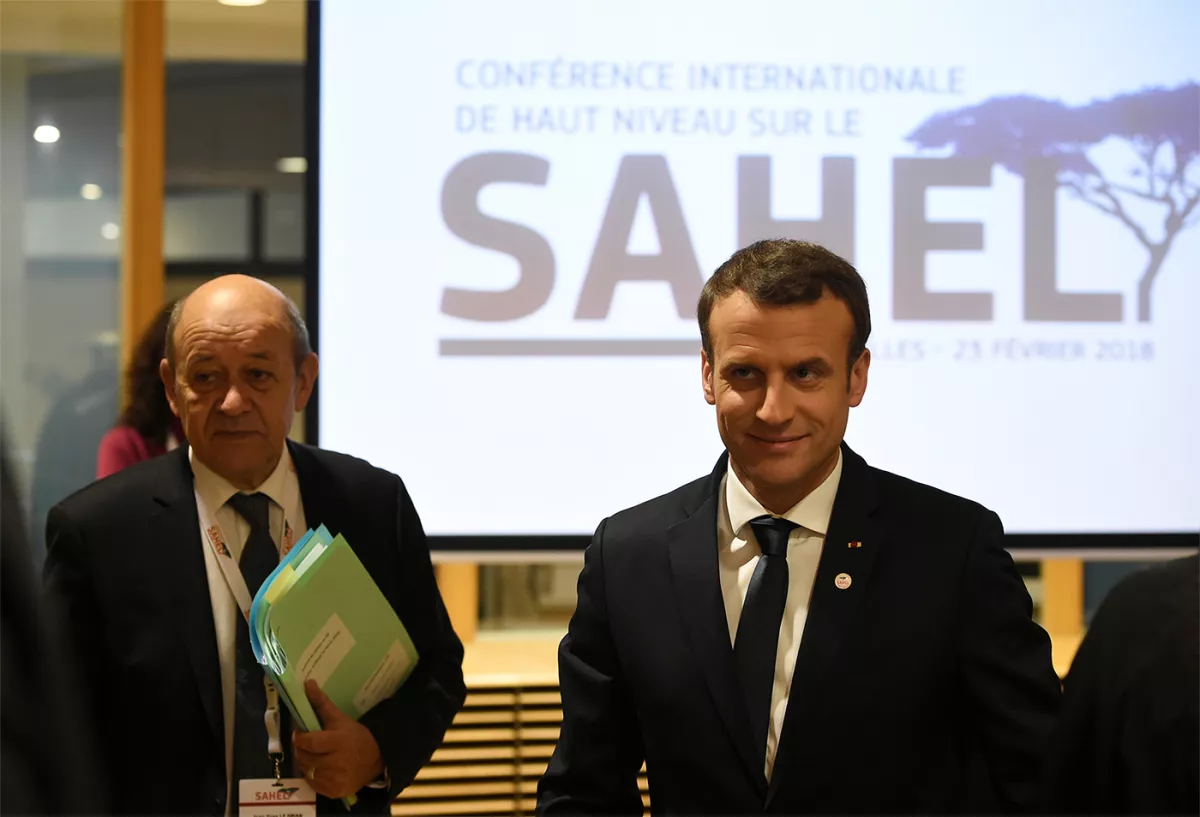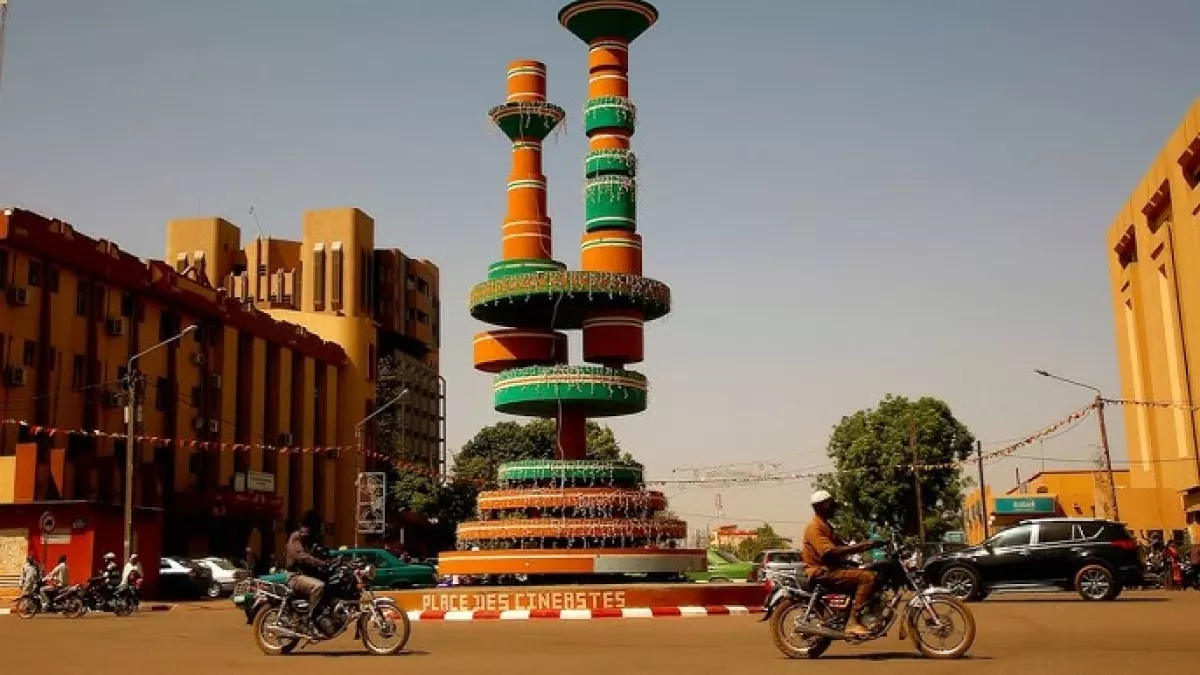From colonial heroes to African icons Mali, Burkina Faso, Niger renaming their streets
TRT Afrika, the digital channel website, has published an article highlighting the process of “Africanization” in Burkina Faso, Mali, and Niger. Caliber.Az offers its readers an analysis of the piece.
The piece by Firmain Eric Mbadinga explores the significant move by Mali, Burkina Faso, and Niger to "Africanize" the names of streets and public landmarks that are still associated with French colonial figures. This shift is part of broader efforts to reclaim national identity, assert sovereignty, and resist the lasting influence of their former colonial ruler, France.
Historical context and motivation
The renaming of streets and landmarks is a historical practice driven by efforts to reclaim cultural and national identities in the face of colonial legacy. As the article outlines, such actions are often seen during times of political upheaval, such as the end of colonial rule, regime changes, or unification efforts. In this case, the decision by military leaders in Mali, Burkina Faso, and Niger to remove French colonial names symbolizes a collective desire to reject colonial vestiges and reaffirm local and African values.

These countries, under military governments, have decided to replace French colonial-era figures, such as Charles de Gaulle, Louis Faidherbe, and Michel de Montaigne, with African icons. The symbolic removal of these names is framed as part of a larger quest for identity and emancipation. The article notes that the decision to rename streets follows mounting tensions between these countries and France, with accusations of French political and territorial destabilization in the region.
France's role in the background
The article contextualizes the current renaming process within the broader tensions between these countries and France. Notably, in 2022, Mali’s foreign minister, Abdoulaye Diop, accused France of espionage and destabilization activities. Additionally, the three countries have voiced concerns about the instrumentalization of the Economic Community of West African States (ECOWAS) by France, suggesting that the organization has been used as a tool to disrupt the economic systems of these nations.
The "Africanization" of public spaces, including streets and monuments, reflects the desire of the countries in the Alliance of Sahel States to break away from French political and economic influence. By renaming Boulevards and Avenues previously named after French colonial figures, the governments seek to assert their independence and take ownership of their historical narratives.
Africanizing streets: National identity vs. urgent priorities
The renaming process, although symbolically significant, has elicited mixed reactions from the population. The article highlights that, while some citizens view it as a necessary part of reclaiming African identity, others are more concerned about practical issues such as economic challenges and security.
Tchanga Chérif Tchouloumbo, a student from Niamey, expresses a pragmatic concern, emphasizing that addressing more immediate concerns—such as improving purchasing power and ensuring security—should take precedence over renaming streets. He seems to feel that the process of renaming is somewhat disconnected from the everyday challenges faced by the people.
In contrast, Issa Ibrahim Alou, from the Nigerien Youth Association for Development, expresses strong support for the Africanization process, stating that it is an important step toward reclaiming sovereignty. He frames the renaming of streets as part of the broader struggle against external domination and sees it as a victory for national identity and cultural preservation.
"We, the Nigerien Youth Association for Development, have always wanted this measure. Now that it is happening, we view it as a good thing. We commend the transitional authorities as this process of Africanisation is part of the struggle for our sovereignty," he states.
The differences in opinion reflect a broader debate in these countries about how best to balance symbolic acts of independence with the pressing economic and security concerns they face.

Dr. Massamba Guèye's perspective on colonial legacy
Dr. Massamba Guèye, a researcher and cultural advocate, adds another layer to the discussion, asserting that the renaming process should not be seen merely as a political statement but as part of a cultural reclamation. He believes that renaming streets and public spaces is essential in creating a post-colonial identity that does not glorify the former colonial powers. According to Dr. Guèye,
“In my view, the colonisers should not be treated as heroes in Africa. When a street is named after a character, it is so that new generations must refer to them as a model. It would be inappropriate to treat someone who enslaved our ancestors as an icon.” His argument underscores the necessity of confronting the colonial past and replacing colonial symbols with figures that reflect the continent’s true history and values.
Dr. Guèye also advocates for a "real work of memorial appropriation," wherein local populations would be involved in the renaming process, ensuring that the new names reflect African history and culture. He argues that renaming streets should not only remove colonial names but also return streets to their original, pre-colonial names when possible. This view aligns with the broader goal of ensuring that future generations inherit a more accurate and dignified historical narrative.
Historical precedents of Africanization
The author places the current renaming movement within a historical context, noting that the Africanization of public spaces has been a long-standing effort. One notable example is Mobutu Sese Seko’s regime in the Democratic Republic of Congo, where the leader abandoned his Western first name, Joseph-Désiré, in favor of a more African identity. Similarly, Pan-Africanist leader Thomas Sankara in Burkina Faso changed the country’s name from Upper Volta to Burkina Faso as part of a broader effort to promote African unity and cultural pride. These earlier efforts in Africanization laid the groundwork for the current movement in Mali, Burkina Faso, and Niger.

Political and economic context: The influence of France
Mubarak Aliyu, a political and security risk analyst, argues that the renaming trend in Mali, Burkina Faso, and Niger is driven by two main factors: the unbalanced economic relationship with France and the ongoing French military influence in the region. According to Aliyu, these countries' efforts to remove colonial symbols from public life are part of a broader effort to challenge the French-dominated economic structures and reduce the presence of French military forces in the region. This move aligns with critiques of the "France-Afrique" networks, which are believed to maintain covert influence over former French colonies in Africa.
In summary, the article sheds light on the complex and multifaceted motivations behind the renaming of streets and public spaces in Mali, Burkina Faso, and Niger. While the renaming process is seen by some as a crucial step toward cultural and political emancipation, it also raises important questions about national priorities.
For some citizens, the symbolic importance of these changes is secondary to the need for addressing more immediate challenges like economic hardship and security threats. Nonetheless, the process of "Africanization" reflects a broader desire to reclaim national identity and resist the lasting influence of colonial powers, particularly France, in the region.








